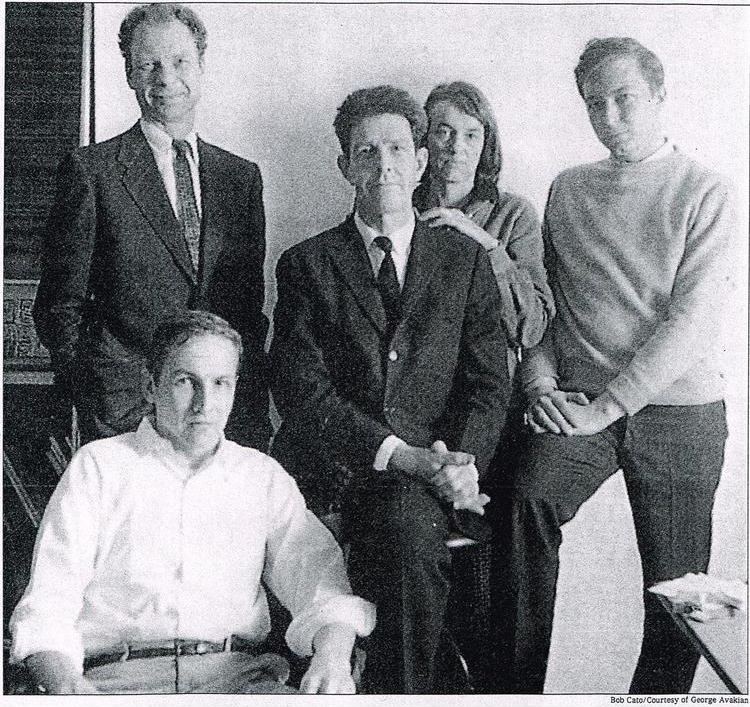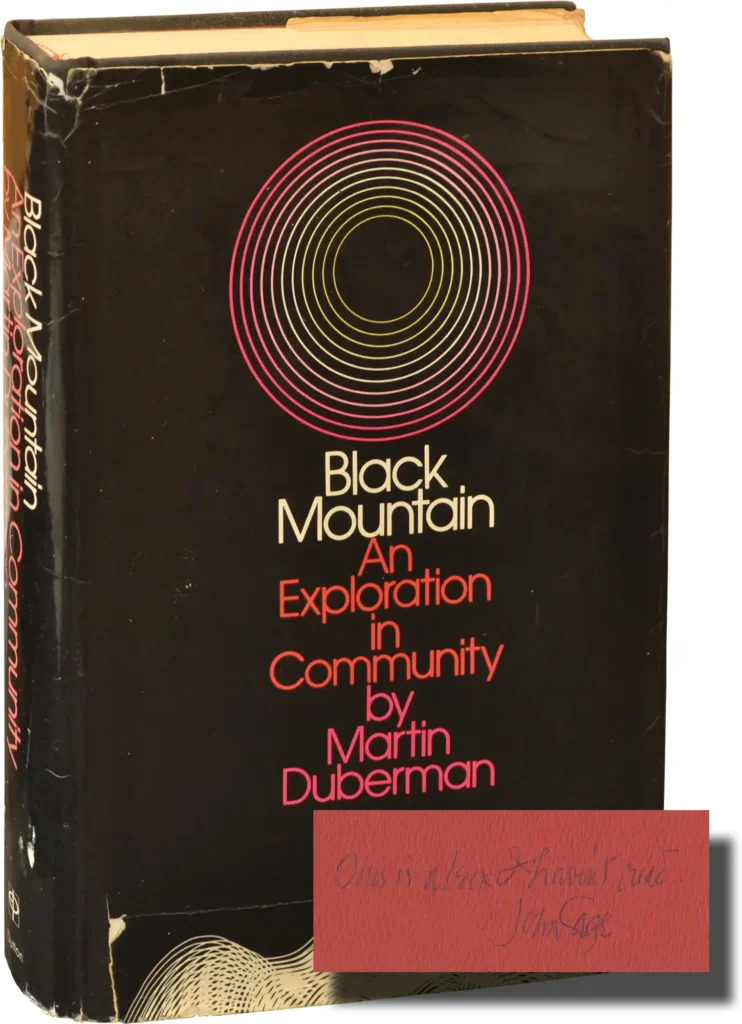
This morning David Hudson posted this c. 1950s photo of Jasper Johns I’d never seen in a space I didn’t recognize, and I had to know more. Looking for the photographer, Bob Cato, took me to another image he made of Johns and crew, which ran in the NY Times in February 2001, accompanying an article about a Carnegie Hall program celebrating John Cage and his collaborative circle. Kay Larson, who would go on to write a biography of Cage, did not actually discuss the photo.

It is from the 1958 photoshoot for the liner notes for the album version of “The 25 Year Retrospective Concert of the Music of John Cage.”
Along with Emil De Antonio, Johns and Rauschenberg produced the concert at Town Hall in May 1958, almost immediately after their own debut exhibitions at Castelli Gallery. Warner executive George Avakian recorded it and produced a limited edition, 3-LP box set, accompanied by a booklet with text by Cage, and photos by art director Bob Cato. [The pic in the notes is this group plus David Tudor. Another image, with Cato photobombing, is in this extensive blog post nominally about Rauschenberg’s animals.]
But that’s not important now. The Cato group shot above was actually posted by Mabel Capability Taylor in her fascinating article on the woman in the photo, poet/potter/teacher Mary Caroline (M.C.) Richards, published in May 2019 in the Journal of Black Mountain College Studies.
Richards taught English at Black Mountain from 1948 until 1951, overlapping with both Rauschenberg and Cage. Taylor’s article lays out an incredible, invisible story of Richards’ unwritten history of Black Mountain, which Cage had encouraged, and which BMC’s most prominent founders and faculty, the Dreiers and the Alberses, quashed.
Besides extensive archival traces, Taylor somehow conjures Richards’ unwritten book between two other works: Centering: In Pottery, Poetry, and Person, a highly influential book Richards did write in 1965; and Black Mountain: An Exploration in Community, the formative first history of BMC, published in 1972 by Martin Duberman, to whom Richards gave her extensive research.
Richards transformed the history she couldn’t write into a worldview she could teach and live, turning Black Mountain from a place to a philosophy, a liberated, self-driven approach to creativity and community. Duberman’s unconventional, first-person book, meanwhile, challenged norms of historical subjectivity, and his own queerness reverberates against the unstated queer experiences of so many of Richards’ Black Mountain circle.

inscribed by John Cage, at Royal Books, Baltimore
One gem among many in Taylor’s article is her mention of Black Mountain at Baltimore rare bookseller, Royal Books. [Taylor suggests it was Cage’s own copy, but that’s unlikely, and the catalogue description—yes, it’s still there—doesn’t claim that.] But the book is inscribed by Cage, with a perfect note for an article about an unwritten book: “This is a book I haven’t read.”
“It wouldn’t have been like a history”: M.C. Richards’s Black Mountain [blackmountaincollege.org]
Black Mountain.., by Martin Duberman, “humorously INSCRIBED” [royalbooks]
